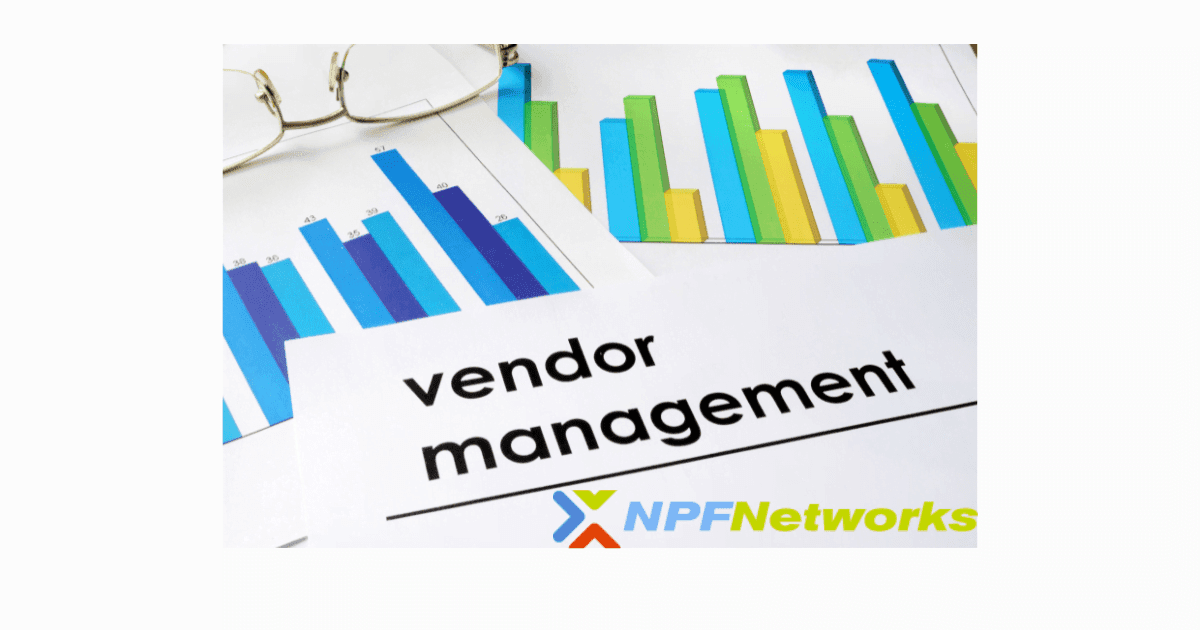In today’s fast-paced digital landscape, effective IT vendor management is crucial for maintaining the smooth operation of your business. Partnering with the right vendors can enhance your technological capabilities, while poor management can lead to costly disruptions and inefficiencies. In this blog post, we’ll explore essential strategies for handling IT vendor management and ensuring your business gets the most out of its technology partnerships.
1. Understand Your Needs
Before engaging with potential IT vendors, it’s vital to clearly define your business’s IT requirements. Identify the specific technology solutions you need, such as cloud services, cybersecurity, or network infrastructure. Understanding these needs will help you communicate effectively with vendors and select a partner that aligns with your business goals.
2. Choose the Right Vendor
Selecting the right IT vendor involves more than just evaluating their technical capabilities. Consider the following factors:
- Reputation and Experience: Research the vendor’s track record and customer reviews. Look for vendors with a proven history of delivering reliable and innovative solutions.
- Compatibility: Ensure the vendor’s solutions are compatible with your existing systems and align with your future IT roadmap.
- Support and Service: Evaluate the vendor’s support offerings. Reliable and responsive customer service can make a significant difference in managing IT issues.
3. Establish Clear Contracts
A well-defined contract is essential for effective IT vendor management. Your contract should cover:
- Scope of Work: Detail the services and deliverables the vendor is expected to provide.
- Performance Metrics: Define performance indicators and benchmarks to measure the vendor’s effectiveness.
- Terms and Conditions: Include terms related to payment, confidentiality, and termination to protect your interests.
4. Monitor Performance Regularly
Regularly monitoring your IT vendor’s performance helps ensure they meet the agreed-upon standards. Implement performance reviews and track key performance indicators (KPIs) such as service uptime, response times, and issue resolution effectiveness. Provide constructive feedback to vendors and address any concerns promptly to maintain a productive relationship.
5. Maintain Open Communication
Effective communication is the cornerstone of successful IT vendor management. Establish regular check-ins and maintain an open line of communication with your vendors. Discuss any changes in your business needs, upcoming projects, or potential issues to keep everyone aligned and informed.
6. Manage Risks Proactively
IT vendor management involves assessing and mitigating risks associated with your technology partners. Conduct risk assessments to identify potential vulnerabilities, such as data security threats or compliance issues. Develop contingency plans and establish procedures to address any disruptions that may arise.
7. Leverage Vendor Relationships
Strong relationships with your IT vendors can lead to additional benefits, such as access to new technologies or preferential pricing. Foster a collaborative partnership by sharing your business goals and seeking opportunities for innovation and improvement.
8. Review and Optimize
Periodically review your vendor management processes and make adjustments as needed. Assess the effectiveness of your vendors, the efficiency of your management practices, and the overall impact on your business. Continuous optimization helps ensure that your IT vendor management strategy remains aligned with your evolving business needs.
Effective IT vendor management is essential for leveraging technology to drive business success. By understanding your needs, choosing the right vendors, and maintaining clear communication, you can build strong partnerships that enhance your IT infrastructure and support your business objectives. Implement these strategies to navigate the complexities of IT vendor management and maximize the value of your technology investments.
For more insights on optimizing your IT infrastructure, stay tuned to NPF Networks‘ blog. Feel free to reach out to our experts for personalized advice on IT vendor management tailored to your business needs.







Leave a Reply